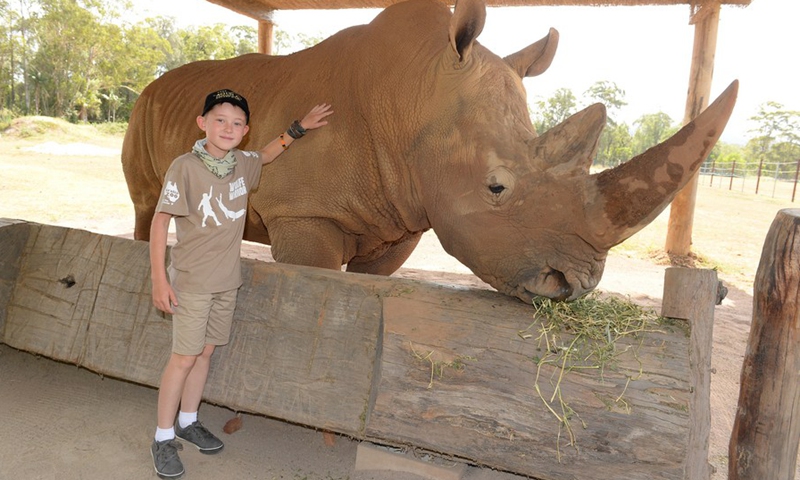
File photo taken on Nov. 25, 2016 shows Hunter Mitchell, South African conservationist posing with a rhino, in Cape Town, South Africa. (Xinhua/Ben Beauden)
South Africa on Tuesday introduced seven Integrated Wildlife Zones across the country to protect endangered rhinos.
By demarcating areas primarily around rhino populations, wildlife in the area will be protected, said Barbara Creecy, Minister of Environment, Forestry and Fisheries.
She made the announcement on the World Rhino Day which falls on September 22.
The introduction of the Integrated Wildlife Zones, similar to the Integrated Protection Zones previously utilized within national parks and provincial reserves, sees an expansion of the effort to protect the world's largest black and white rhino populations, Creecy said in a statement.
By introducing a zoning approach, the necessary resources can be redirected to areas most in need of support, further ensuring cooperation between the state and private role-players, the minister said.
This approach, she said, is aligned to the objectives of South Africa's National Integrated Strategy to Combat Wildlife Trafficking.
"This initiative prevents borders and boundaries from inhibiting planning and the implementation of actions aimed at halting rhino poaching and the smuggling of rhino horn," Creecy said.
The concept is based on multi-party cooperation with the use of appropriate technologies to ensure surveillance, early warning and detection in a more pro-active manner, she explained.
Creecy welcomed the participation by key role-players who have joined the South African government in its fight against rhino poaching through the utilization of new and tested technologies.
Despite the marked decrease in rhino poaching during the COVID-19 national lockdown, the government's target remains an end to rhino poaching, the minister said.
At least 166 rhinos were poached in South Africa during the first six months of 2020, a decrease of about 53 percent compared with the same period of 2019 when 316 were lost to poachers for their horns, according to official statistics.
South Africa is home to about 85 percent of the world's rhino population, making it the center of the poaching crisis.
